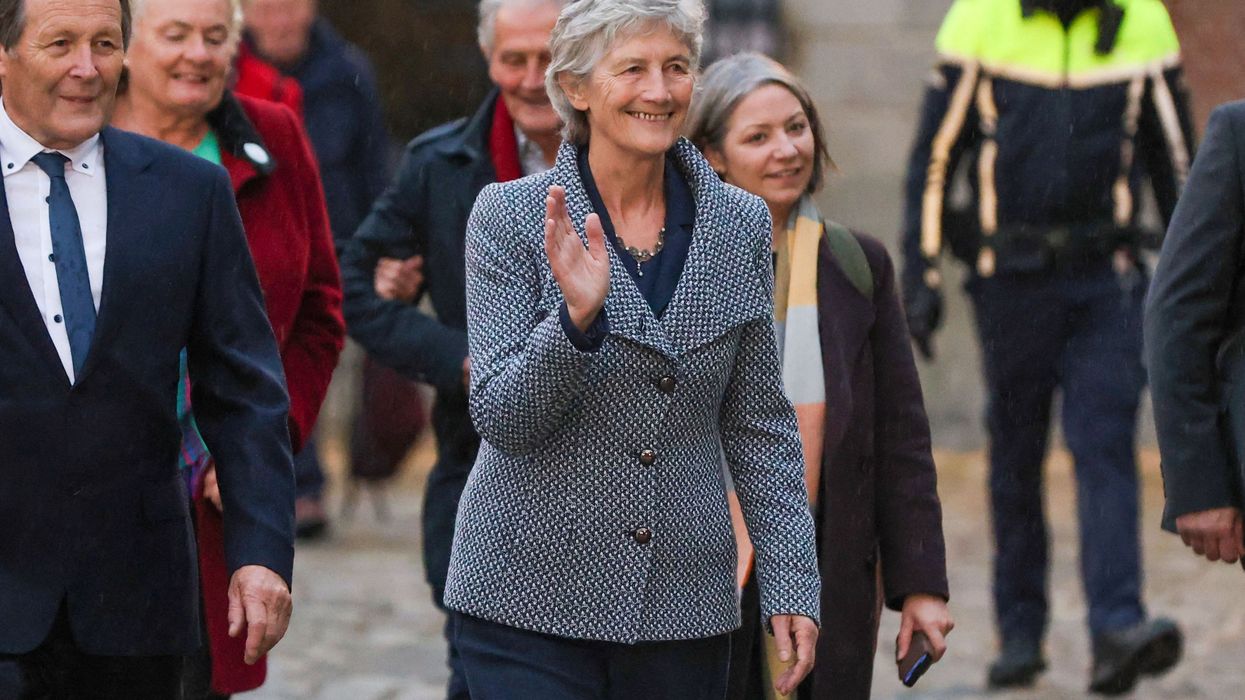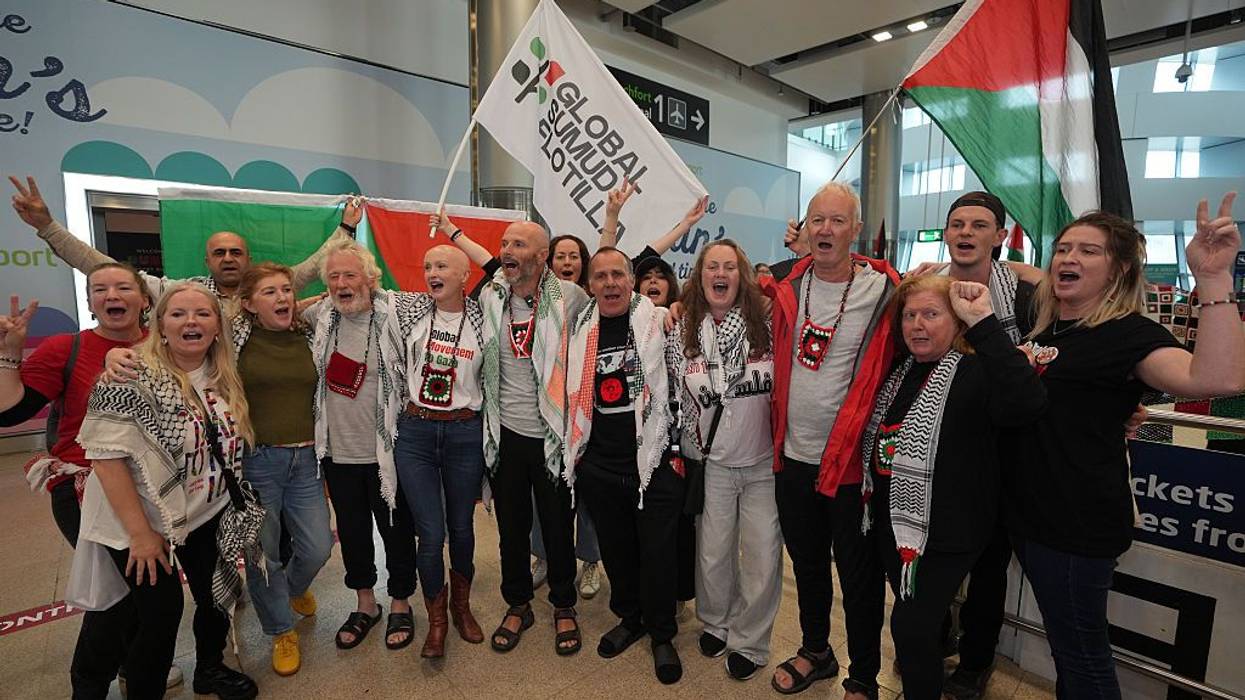Further, Netanyahu’s extremist government has made no commitment to fully withdraw from Gaza, and there is no commitment to any real plan to rebuild the massive devastation Israel has created in Gaza with any role for any Palestinian leadership. And even with the announced ceasefire “food, water and medicine remained scarce,” the New York Times noted.
One horrific fact is clear. As of October 5, at least 67,139 Palestinians have been confirmed killed with tens of thousands more unaccounted for and likely still buried under rubble. Of those dead, more than 20,000 were children. At least 459, including 154 children, have died from starvation due to the famine imposed by Israel as a weapon of war.
Famines, especially those driven by political or military policy, have often produced persistent calamitous consequences for the survivors. Signs are already evident for Palestinians in Gaza. A study led by the UN Relief and Works Agency (UNRWA) for Palestine Refugees, published by the medical journal The Lancet this week, disclosed that nearly 55,000 children under the age of six in Gaza are estimated to be acutely malnourished.
UNRWA researchers found that 5 percent of children screened in January 2024 showed evidence of wasting. By May 2025 May 2025, “levels of wasting among screened children rose to nearly 16 percent, with almost a quarter of these suffering severe acute malnutrition, the most dangerous form of the condition,” the Guardian described.
Even before the war, after years of an Israeli blockade of Gaza, children in Palestinian refugee families in Gaza were already “food insecure,” said UNRWA nutrition epidemiologist Dr. Masako Horino, and now, due to the famine “face an increased risk of mortality.”
What does the future hold? A forewarning could be found in perhaps the world’s most chronicled famine in Ireland from 1845 to the early 1850s, following a devastating potato blight, a crop that dominated the food source in Ireland. An 1841 census recorded a population of 8.4 million people in Ireland. Ten years later, following years of famine and a mass emigration by desperately sick people, many forced off their land by British landlords, the population had plummeted to just 6.5 million, and it continued to decline for decades.
In 2025, the combined population of the Irish Republic, even after the economic gains of the so-called Celtic Tiger since the 1990s, and ongoing British controlled Northern Ireland, is still just 6.8 million people, less than before the famine. By comparison, the United Kingdom’s population in 1840, including all of Ireland, was 26.7 million. Today, the UK population, including Northern Ireland, has climbed to nearly 70 million.
In what may well be the definitive history of Ireland’s suffering, "Rot. An Imperial History of the Irish Famine," Padraic Scanlan, explains that the Irish famine does not fit the international law definition of starvation crime. That requires deliberate action “by government or military committing the crime must act either to destroy the means of producing or obtaining food, or to forcibly displace people to cause starvation.” These are terms that directly apply to Israel’s forced famine in Gaza.
Though Scanlan does not directly address Gaza, there are multiple parallels. “The hyper dependence of so many of the Irish poor on the (potato) crop was an adaptation to English and British conquest, and to the subsequent growth of the British empire and imperial capitalism,” he writes.
Central to that were intentional policies following the Protestant Reformation. “English forces seized almost all Irish land” held by Catholics and “redistributed it to Protestant loyalists. The English Parliament passed the Penal Laws, which legalized the persecution and dispossession of Catholics (in Ireland) and strictly limited Ireland’s political and economic independence.” Echoes of Israeli apartheid policies, especially in Gaza and the West Bank, are not hard to find, from land grabs by settlers to discriminatory laws, denial of political rights, and other restrictions and repression.
Increasingly, Irish people, especially in rural areas, were landless, forced to pay rent to British landlords, while the British political leadership stripped Ireland of any potential wealth through its devotion to early capitalist market fundamentalist policies, including export and transfer to England of other food products and capital.
Frederick Douglass, Scanlan notes, visited Ireland at the invitation of slavery abolitionists in 1845-46, and was shocked by what he observed. Douglass viewed that “the Irish poor and the enslaved and free Black workers in the US were united by a common struggle to survive in different, but pitiless, conditions.”
Longtime British racialized stereotypes of poor Irish laborers were reinforced by the rising orthodoxy of market ideology. The Irish rural poor were depicted as “resistant to modernity and reform,” as “inert and indolent,” as ”lazy, apathetic, backward,” unwilling to work for wages, and similar pejoratives. Those slanders were seen as “justification for conquest, and British rule. British relief programs during the famine were characterized by work requirements, means testing, or agreement to surrender land, to qualify for food assistance.
Ultimately, British landlords and would-be investors welcomed evictions and forced migration to "liberate" what was deemed “valuable land from inconvenient or unproductive tenants,” Scanlan writes, another parallel to how Israeli settlers, with the assistance of the Israeli government and military, treat West Bank Palestinians. There are even US land speculators leading the current Gaza peace negotiations.
Racist, supremacist rhetoric is pervasive in Israeli dehumanized depictions of Palestinians as well, with even worse terms like “human beasts,” “children of darkness,” and insensitivity to the murder, even of Palestinian children, which have escalated since October 7, 2023.
It has carried over to indifference to those dying of famine. In Ireland, the famine killed the weakest and most vulnerable, Scanlan reminds his readers. “The soup kitchens like the public work programs kept people alive but not healthy.” In Gaza too, we’ve heard claims that it has been pre-existing conditions or other justifications, not deliberate famine, that have led to starvation deaths.
Other European countries also suffered famine deaths in the 1840s from the potato blight, “but only Ireland experienced demographic collapse during and after the blight pandemic,” Scanlan adds. “Years of starvation and disease dissolved bonds of community and family in the hardest-hit parts of Ireland.”
Ireland’s history with settler colonialism, occupation, political repression, and famine has helped make the Irish people among the strongest critics of Israel’s genocide and for many years among those with the most solidarity for Palestinian rights. The population decline in Ireland, and many years needed to finally secure political freedom for the Republic of Ireland, and ultimately unification of the island are a message. Even if the proposed ceasefire agreement does lead to an end to the war and some gains for Palestinian sovereignty and rights, it will be up to the entire international community and all of us to demand it.




